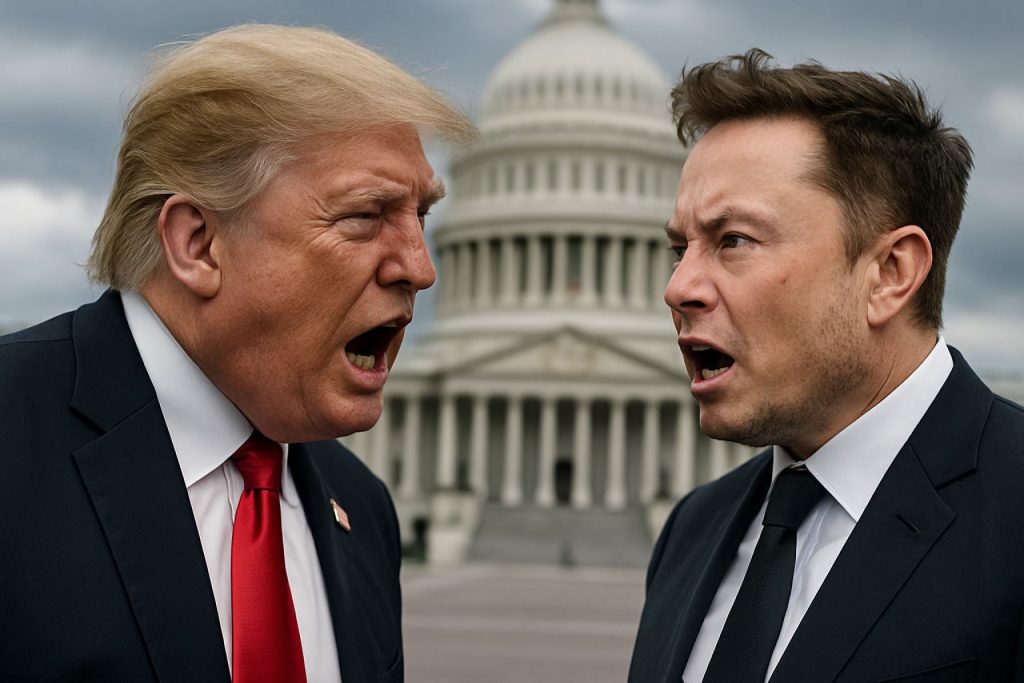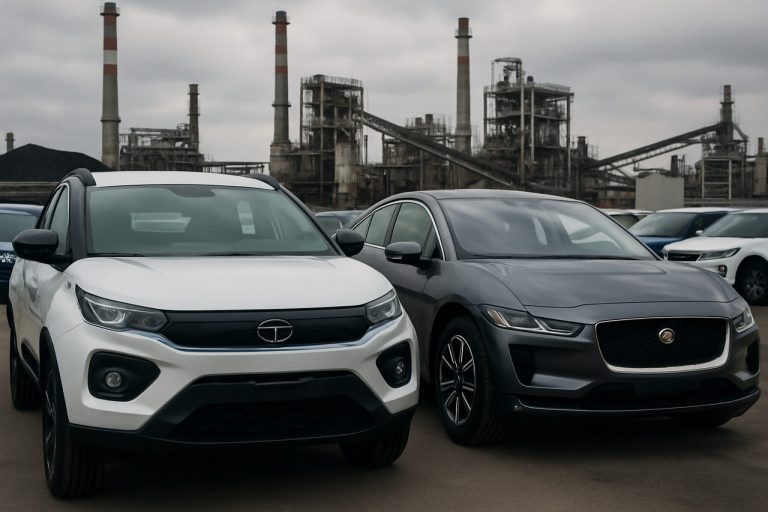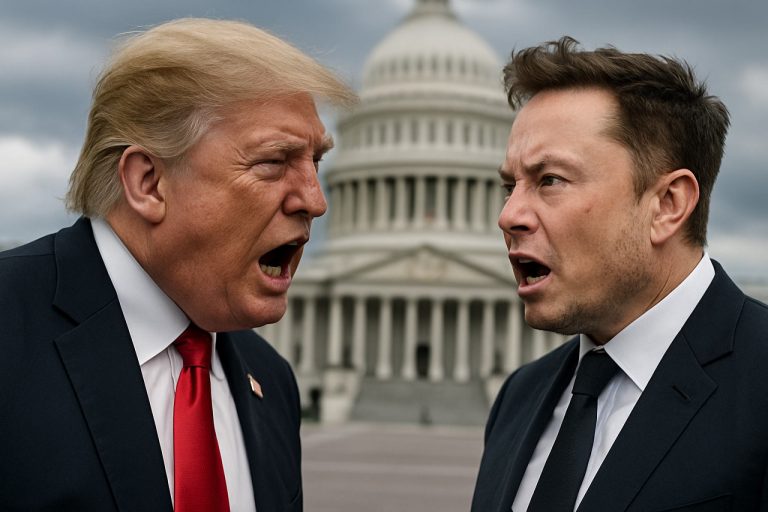
Trump and Musk’s Feud Reaches Boiling Point Over “Big Beautiful Bill” and EV Incentives: What It Means for 2025
The Trump-Musk fallout sparks a war over electric vehicle incentives, trillion-dollar deficits, and America’s clean tech future. Here’s what’s at stake.
- $38 Billion: Federal subsidies awarded to Musk-owned companies since 2010
- 71%: Tesla’s Q1 year-over-year profit loss
- $7,500: Federal EV tax credit to end if “Big Beautiful Bill” passes
- 30+ Tweets: Number of posts Musk fired off in a single day about the bill
Big egos and bigger numbers are colliding in Washington DC, as President Donald Trump and Tesla CEO Elon Musk take their feud public over the controversial “Big Beautiful Bill”—a massive budget proposal facing fierce opposition from tech leaders, automakers, and even some Republican lawmakers.
The drama erupted after the House passed the bill, which would slash key electric vehicle (EV) incentives and impose hefty new fees on clean cars, sending shockwaves through the automotive and tech industries.
But this explosive back-and-forth isn’t just about money—it’s exposing deep rifts over energy, innovation, and the future of American competitiveness.
—
Why Are Trump and Musk Feuding Now?
The relationship between the world’s richest entrepreneur and the nation’s most polarizing president was always fraught, but tensions soared after the White House unveiled plans to eliminate the federal tax credit for new EVs—a move that would gut consumer incentives and leave automakers scrambling.
Musk, who leads Tesla and SpaceX, took to X (formerly Twitter) with a rapid-fire blitz of posts. He accused the Trump administration of pushing the bill “in the dead of night” and claimed the legislation would drive up the national deficit by trillions. Musk openly challenged Trump’s narrative, insisting he was kept out of the loop and blindsided by the sweeping changes.
Trump, for his part, dismissed Musk’s claims, stating the Tesla boss only objected once it became clear the EV mandates and consumer credits were on the chopping block.
—
What Is in the “Big Beautiful Bill”?
At the center of the controversy lies Trump’s banner budget—the “Big Beautiful Bill”—which promises to reshape the American auto market and dramatically scale back clean technology incentives:
- Ends federal “clean vehicle credit” by the end of 2025, halting $7,500 rebates nearly seven years ahead of schedule.
- Reintroduces fees: $250 per year for fully electric vehicles; $100 for hybrids.
- Blocks new state-level AI laws for 10 years, alarming both Republicans and tech experts who warn of unforeseen risks from fast-moving artificial intelligence.
The bill also takes aim at government waste—a pet issue for both Trump and Musk—but critics call out the “mountain of disgusting pork” (Musk’s words) that still remains.
—
How Will This Impact Tesla and the EV Industry?
Tesla’s stock and future sales could see massive swings. While Musk once downplayed the EV credit’s impact on Tesla, the company now touts the federal incentive on its homepage—a crucial selling point after a jaw-dropping 71% profit drop this year.
Other automakers may take an even bigger hit. The clean vehicle credit helps nascent EV makers compete with established giants. If cut, industry analysts at Bloomberg predict an EV slowdown that could ripple across jobs, supply chains, and climate goals.
Further complicating the picture, Tesla and other Musk-run companies (including Starlink) have benefited from a combined $38 billion in federal contracts and subsidies, even as Washington reviews whether to award new ones.
—
Q: Who Wins if Subsidies End?
A: Ironically, Musk has argued his rivals suffer most from losing the credit, since Tesla’s size and scale already give it an edge. Yet the showdown risks chilling the entire U.S. clean energy sector, risking America’s global leadership as rivals like China and the EU ramp up their own EV support.
How to Prepare for the Wild Road Ahead
With the Senate poised for a fierce battle—and possible bill rewrites—drivers, investors, and tech fans should brace for more turmoil.
Watch for:
- Senate amendments that could revive or gut EV credits and AI rules
- Potential lawsuits over the fee structure facing EV and hybrid owners
- Tech industry lobbying as major players like Apple and Google weigh in on AI and clean energy policy
—
Q: What Should EV Owners Do Now?
- Check if you still qualify for the federal tax credit before the end-of-year deadline
- Expect higher registration fees for electric and hybrid vehicles—plan your budget accordingly
- Track news from reliable sources such as NPR and Reuters for latest legislative developments
—
Take Action: Stay Informed and Protect Your Investments
- Monitor the Senate vote closely
- Contact your representative if you care about EVs or AI policy
- Sign up for updates from trusted sources and stay on top of auto and tech news
- Consider timing your next EV or hybrid purchase before possible incentives disappear



